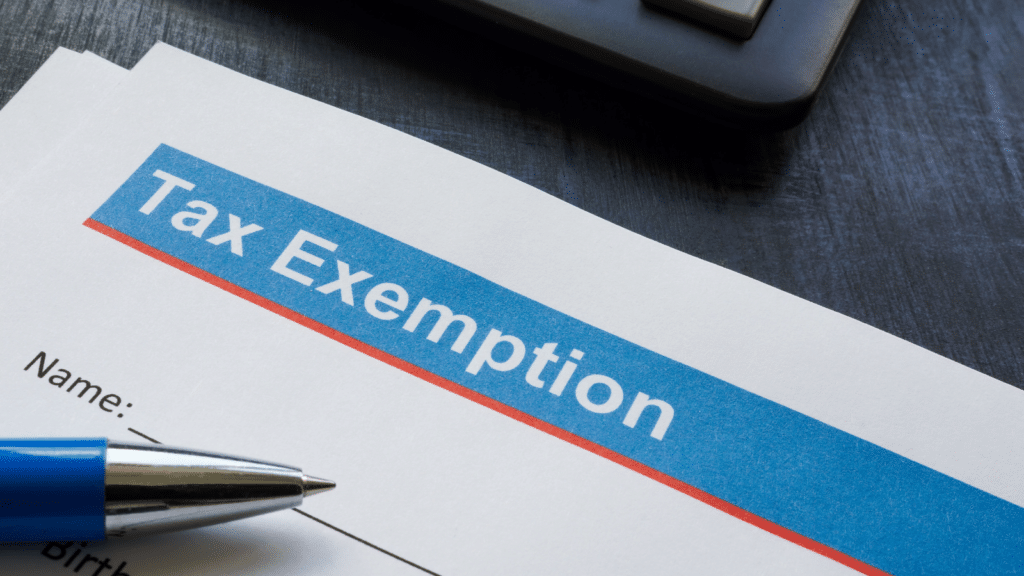Introduction Directive 2014/59 on the recovery and resolution of financial institutions and Regulation 806/2014 on establishing the single resolution mechanism stipulate that if state aid is granted to a bank, it is automatically considered to be “failing or likely to fail” and it must be either resolved, if it is a systemic institution, or, otherwise, liquidated. The only exception is […]
State Aid Law
Blog
State Aid Uncovered Blog
In Lexxion’s State Aid Uncovered blog, Prof. Phedon Nicolaides publishes weekly critical analyses of recent State aid judgments and decisions. Each post presents the key points of a court judgment or EU Commission decision, places it in the context of similar case law or practice, assesses the underlying reasoning and highlights any inconsistencies or contradictions.
Guest contributions from other State aid experts will also be published on the blog at irregular intervals to complement the content of the blog posts.
- advantage ×
9. September 2025 |
State Aid Uncovered
by Phedon Nicolaides
26. August 2025 |
State Aid Uncovered
by Phedon Nicolaides
Introduction The Finnish state owned 100% of four different companies which operated risk capital and private equity. One of those four companies was “Tesi”. Finland proposed the consolidation of the other three companies – with an estimated value of EUR 500 million – into Tesi. In addition, Finland intended to inject extra capital of EUR 300 million in Tesi. For […]
12. August 2025 |
State Aid Uncovered
by Phedon Nicolaides
Introduction A perennial issue facing aid-granting authorities is whether the aid applicants are SMEs. A mis-assessment of the SME status can have dire consequences as demonstrated by a Commission decision in May 2025 concerning State aid granted by Germany to sawmill Abalon Hardwood Hessen [AHH] [SA.24030]. The Commission found the aid to be incompatible with the internal market and ordered […]
5. August 2025 |
State Aid Uncovered
by Phedon Nicolaides
Introduction A public measure must be selective and satisfy the other criteria of Article 107(1) TFEU in order to be classified as State aid. The detection of selectivity requires a comparative exercise: a comparison of the aid beneficiary or beneficiaries with non-aid beneficiaries. But which non-aid beneficiaries to take into account. The answer is those who are in a similar […]
17. June 2025 |
State Aid Uncovered
by Phedon Nicolaides
Introduction Eu law does not prohibit states from owning or investing in companies [see Article 345 TFEU]. This means that when the state, as owner, makes payments to the companies it owns or loses part of its capital as a result of commercial losses, it does not grant to them State aid if such payments are mandated by law and […]
13. May 2025 |
State Aid Uncovered
by Phedon Nicolaides
Introduction In November 2014, the General Court in case T-219/10, Autogrill v Commission, held that a tax exemption for the acquisition of foreign undertakings did not constitute State aid because it did not exclude any undertaking from benefitting from it. This was because the beneficiaries could not be identified beforehand. However, on appeal, in December 2016, the Court of Justice […]
1. April 2025 |
State Aid Uncovered
by Phedon Nicolaides
Introduction Very often Member States claim that subsidies they grant as compensation for the costs incurred by the recipient undertakings do not confer an advantage to them and therefore do not constitute State aid. The Court of Justice of the EU [CJEU] has on the whole rejected this claim even if the subsidy is less than the costs which are […]
11. March 2025 |
State Aid Uncovered
by Phedon Nicolaides
Introduction Public land is a public asset that must be priced correctly when rented out to third parties. The problem is that in most cases rented out plots of public land are either too large or are in unusual places. In either case, comparable commercial transactions are difficult to find, especially if transactions in such plots are infrequent. In these […]
3. December 2024 |
State Aid Uncovered
by Phedon Nicolaides
Introduction A perennial question by aggrieved investors who feel cheated by u-turns in public policy is: “May I claim compensation for damage that I have suffered as a result of non-payment of the State aid that was promised to me?” As a result of recent case law, it is now clear that there are several answers to this question: First, […]
26. November 2024 |
State Aid Uncovered
by Phedon Nicolaides
Introduction This article reviews two judgments concerning a claim that compensation does not constitute State aid and a complaint that the Commission had failed to act, respectively. The latter case is particularly interesting because it is probably the only judgment in the past decade or two that the Court of Justice has actually upheld a claim that the Commission breached […]
- advantage ×
9. September 2025 |
State Aid Uncovered
by Phedon Nicolaides
Introduction Directive 2014/59 on the recovery and resolution of financial institutions and Regulation 806/2014 on establishing the single resolution mechanism stipulate that if state aid is granted to a bank, it is automatically considered to be “failing or likely to fail” and it must be either resolved, if it is a systemic institution, or, otherwise, liquidated. The only exception is […]
26. August 2025 |
State Aid Uncovered
by Phedon Nicolaides
Introduction The Finnish state owned 100% of four different companies which operated risk capital and private equity. One of those four companies was “Tesi”. Finland proposed the consolidation of the other three companies – with an estimated value of EUR 500 million – into Tesi. In addition, Finland intended to inject extra capital of EUR 300 million in Tesi. For […]
12. August 2025 |
State Aid Uncovered
by Phedon Nicolaides
Introduction A perennial issue facing aid-granting authorities is whether the aid applicants are SMEs. A mis-assessment of the SME status can have dire consequences as demonstrated by a Commission decision in May 2025 concerning State aid granted by Germany to sawmill Abalon Hardwood Hessen [AHH] [SA.24030]. The Commission found the aid to be incompatible with the internal market and ordered […]
5. August 2025 |
State Aid Uncovered
by Phedon Nicolaides
Introduction A public measure must be selective and satisfy the other criteria of Article 107(1) TFEU in order to be classified as State aid. The detection of selectivity requires a comparative exercise: a comparison of the aid beneficiary or beneficiaries with non-aid beneficiaries. But which non-aid beneficiaries to take into account. The answer is those who are in a similar […]
17. June 2025 |
State Aid Uncovered
by Phedon Nicolaides
Introduction Eu law does not prohibit states from owning or investing in companies [see Article 345 TFEU]. This means that when the state, as owner, makes payments to the companies it owns or loses part of its capital as a result of commercial losses, it does not grant to them State aid if such payments are mandated by law and […]
13. May 2025 |
State Aid Uncovered
by Phedon Nicolaides
Introduction In November 2014, the General Court in case T-219/10, Autogrill v Commission, held that a tax exemption for the acquisition of foreign undertakings did not constitute State aid because it did not exclude any undertaking from benefitting from it. This was because the beneficiaries could not be identified beforehand. However, on appeal, in December 2016, the Court of Justice […]
1. April 2025 |
State Aid Uncovered
by Phedon Nicolaides
Introduction Very often Member States claim that subsidies they grant as compensation for the costs incurred by the recipient undertakings do not confer an advantage to them and therefore do not constitute State aid. The Court of Justice of the EU [CJEU] has on the whole rejected this claim even if the subsidy is less than the costs which are […]
11. March 2025 |
State Aid Uncovered
by Phedon Nicolaides
Introduction Public land is a public asset that must be priced correctly when rented out to third parties. The problem is that in most cases rented out plots of public land are either too large or are in unusual places. In either case, comparable commercial transactions are difficult to find, especially if transactions in such plots are infrequent. In these […]
3. December 2024 |
State Aid Uncovered
by Phedon Nicolaides
Introduction A perennial question by aggrieved investors who feel cheated by u-turns in public policy is: “May I claim compensation for damage that I have suffered as a result of non-payment of the State aid that was promised to me?” As a result of recent case law, it is now clear that there are several answers to this question: First, […]
26. November 2024 |
State Aid Uncovered
by Phedon Nicolaides
Introduction This article reviews two judgments concerning a claim that compensation does not constitute State aid and a complaint that the Commission had failed to act, respectively. The latter case is particularly interesting because it is probably the only judgment in the past decade or two that the Court of Justice has actually upheld a claim that the Commission breached […]
- advantage ×
9. September 2025 |
State Aid Uncovered
by Phedon Nicolaides
Introduction Directive 2014/59 on the recovery and resolution of financial institutions and Regulation 806/2014 on establishing the single resolution mechanism stipulate that if state aid is granted to a bank, it is automatically considered to be “failing or likely to fail” and it must be either resolved, if it is a systemic institution, or, otherwise, liquidated. The only exception is […]
26. August 2025 |
State Aid Uncovered
by Phedon Nicolaides
Introduction The Finnish state owned 100% of four different companies which operated risk capital and private equity. One of those four companies was “Tesi”. Finland proposed the consolidation of the other three companies – with an estimated value of EUR 500 million – into Tesi. In addition, Finland intended to inject extra capital of EUR 300 million in Tesi. For […]
12. August 2025 |
State Aid Uncovered
by Phedon Nicolaides
Introduction A perennial issue facing aid-granting authorities is whether the aid applicants are SMEs. A mis-assessment of the SME status can have dire consequences as demonstrated by a Commission decision in May 2025 concerning State aid granted by Germany to sawmill Abalon Hardwood Hessen [AHH] [SA.24030]. The Commission found the aid to be incompatible with the internal market and ordered […]
5. August 2025 |
State Aid Uncovered
by Phedon Nicolaides
Introduction A public measure must be selective and satisfy the other criteria of Article 107(1) TFEU in order to be classified as State aid. The detection of selectivity requires a comparative exercise: a comparison of the aid beneficiary or beneficiaries with non-aid beneficiaries. But which non-aid beneficiaries to take into account. The answer is those who are in a similar […]
17. June 2025 |
State Aid Uncovered
by Phedon Nicolaides
Introduction Eu law does not prohibit states from owning or investing in companies [see Article 345 TFEU]. This means that when the state, as owner, makes payments to the companies it owns or loses part of its capital as a result of commercial losses, it does not grant to them State aid if such payments are mandated by law and […]
13. May 2025 |
State Aid Uncovered
by Phedon Nicolaides
Introduction In November 2014, the General Court in case T-219/10, Autogrill v Commission, held that a tax exemption for the acquisition of foreign undertakings did not constitute State aid because it did not exclude any undertaking from benefitting from it. This was because the beneficiaries could not be identified beforehand. However, on appeal, in December 2016, the Court of Justice […]
1. April 2025 |
State Aid Uncovered
by Phedon Nicolaides
Introduction Very often Member States claim that subsidies they grant as compensation for the costs incurred by the recipient undertakings do not confer an advantage to them and therefore do not constitute State aid. The Court of Justice of the EU [CJEU] has on the whole rejected this claim even if the subsidy is less than the costs which are […]
11. March 2025 |
State Aid Uncovered
by Phedon Nicolaides
Introduction Public land is a public asset that must be priced correctly when rented out to third parties. The problem is that in most cases rented out plots of public land are either too large or are in unusual places. In either case, comparable commercial transactions are difficult to find, especially if transactions in such plots are infrequent. In these […]
3. December 2024 |
State Aid Uncovered
by Phedon Nicolaides
Introduction A perennial question by aggrieved investors who feel cheated by u-turns in public policy is: “May I claim compensation for damage that I have suffered as a result of non-payment of the State aid that was promised to me?” As a result of recent case law, it is now clear that there are several answers to this question: First, […]
26. November 2024 |
State Aid Uncovered
by Phedon Nicolaides
Introduction This article reviews two judgments concerning a claim that compensation does not constitute State aid and a complaint that the Commission had failed to act, respectively. The latter case is particularly interesting because it is probably the only judgment in the past decade or two that the Court of Justice has actually upheld a claim that the Commission breached […]













